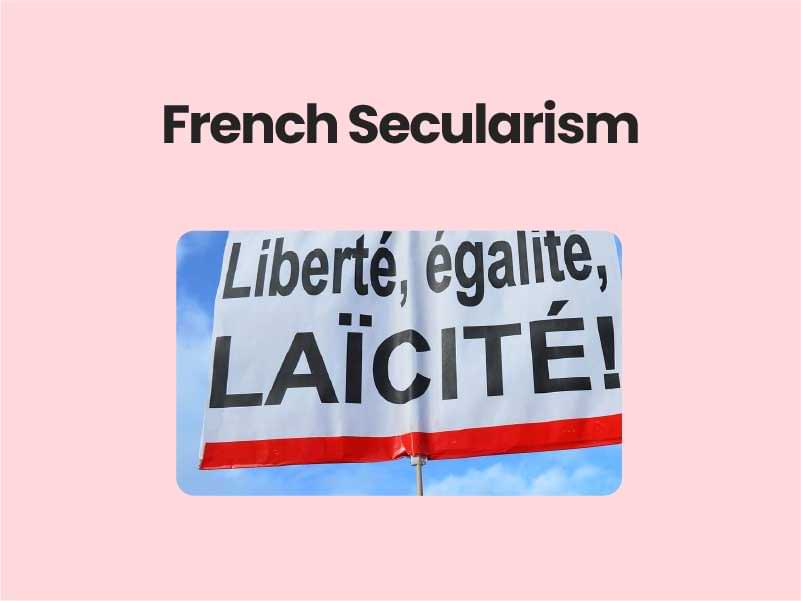Companion@360 → 7 Month programme to sharpen your writing skills → REGISTER NOW

French Secularism
Secularism is the principle of the separation of government institutions and persons mandated to represent the state from religious institutions and religious dignitaries. France has been one of the oldest democracies in the world with its approach towards citizen rights and governance. But there are some features that need revisiting in order to strengthen its core values, which it can learn from India. The French model of secularism separates the state from religion. The state does not support religious activities but also not interfere in private religious practices.
Issues with French secularism:
- The drawbacks of this model can be seen as, such states focus on intra-religious domination by the strict separation of state from church to realise among other things individual freedoms, issues of inter-religious (and therefore minority rights) equality are often neglected.
- This model leaves no scope for the idea of state-supported religious reforms.
- The recent Hijab and Burkini ban in France has created anxiety among minorities.
- In France, religion is a private matter, not a matter of state policy or law. This model interprets freedom and equality in an individualistic manner.
- Liberty is the liberty of an individual. Equality is equality between individuals. There is little scope for community-based rights or minority rights.
- In early 20th-century France—a fairly homogeneous, Christian nation. The French model of secularism was a straightforward attempt to protect the government from the sway of the Catholic Church.
- Laïcité is also criticized for increasing police powers that could endanger respect for civil liberties.
- Laïcité is unintelligible and even shocking to religious minorities, who view it as an injunction to abandon their religion.
Features that France can take as learnings from India:
- The Indian model of Secularism not only upholds individual religious rights but also community religious rights.
- The fundamental rights specially protect the rights of religious minorities (Articles 25-30).
- Linguistic and religious rights to minorities
- Shunning state religion
- Recognition of diversity
- Sarva Dharma Sambhava
- Positive secularism
Way forward:
- France can still take steps to introduce new measures in its constitution to protect its secular characteristics.
- France can take a leaf from the Indian secularism model and recognise multiculturalism.
- French society to ensure value-education that makes the younger generation understand and appreciate not only its own religious traditions but also those of the other religions in the country.
